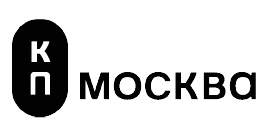Regulation of medical applied sciences is boosting service supply through new drug improvement in South Korea and telemedicine in Russia
Healthcare replace in South Korea
South Korea’s Second Complete Nationwide Well being Insurance coverage Plan, being carried out from 2024 to 2028, incorporates vital encouragement for brand spanking new drug improvement. Together with enhancing important medical providers and enhancing sustainability of the Nationwide Well being Insurance coverage (NHI) system – together with enhancing monetary sustainability and establishing a steady provide system – the second complete plan outlines key initiatives concerning prescription drugs.

Importantly, it enhances affected person entry by way of honest compensation for revolutionary medication by:
Offering preferential remedy throughout pharmacoeconomic evaluations for brand spanking new medication recognised as revolutionary;
Increasing eligibility for the risk-sharing settlement (RSA) to incorporate therapies for extreme ailments that trigger irreversible and vital deterioration in high quality of life; and
Facilitating immediate drug worth will increase to deal with provide instabilities.
The plan additionally goals to optimise NHI pharmaceutical expenditure, by way of:
Creating a long-term strategic framework to combine fragmented mechanisms for drug worth changes;
Reviewing worth changes for off-patent medication after evaluating home costs with corresponding costs in choose international international locations;
Strengthening post-market administration of high-cost therapies for extreme ailments, specializing in affected person security and medical effectiveness; and
Restructuring the pricing system for generic medication; and
Bettering the price-volume settlement system.
Analysis standards


In August 2024, the Well being Insurance coverage Assessment and Evaluation Service revised the Detailed Analysis Standards for Medication Topic to Negotiations, Together with New Medication to implement these initiatives.
The important thing revisions embrace specifying “innovativeness” for versatile software of the Incremental Value-Effectiveness Ratio (ICER) threshold. The innovativeness factor for versatile software of ICER requires medication to fulfill the next three standards:
No different or therapeutically equal merchandise or therapies exist;
Vital medical enchancment primarily based on last end result indicators, e.g. prolonged survival, might be recognised; and
The drug is permitted by way of the fast-track course of by the Ministry of Meals and Drug Security (MFDS), or deemed equal by the Drug Reimbursement Analysis Committee.
RSA eligibility can also be expanded underneath the revision. In apply, the RSA was largely restricted to most cancers therapies or orphan medication used for severe, life-threatening ailments with no different, or therapeutically equal merchandise or therapies.
The revision expands RSA eligibility to incorporate medication for extreme ailments which are troublesome to remedy, trigger irreversible disabilities, organ harm, and so forth., as they progress, and impose a major illness burden.
South Korea operates a unified, single-payer NHI system that covers the overwhelming majority of the inhabitants, considerably influencing its pharmaceutical business.
Whereas latest regulatory developments such because the honest valuation of revolutionary medication are encouraging, there stays a transparent potential for stronger drug worth discount measures geared toward optimising NHI pharmaceutical expenditure.
Firms are suggested to carefully monitor these developments and adapt their methods to reply successfully to evolving insurance policies.
CSO rules


Underneath the Pharmaceutical Affairs Act, a contract gross sales organisation (CSO) refers to entities entrusted by pharmaceutical suppliers to carry out promotional actions for prescription drugs, together with these re-entrusted for such functions.
Beforehand, CSOs operated outdoors the formal regulatory framework, complicating oversight and elevating considerations about oblique unlawful enterprise practices.
To handle these points, the federal government amended the act in 2021, subjecting CSOs to the twin punishment system for rebates (imposing prison legal responsibility on each suppliers and recipients of unlawful rebate) and requiring them to organize expenditure reviews detailing financial advantages offered to healthcare professionals.
The amended act, efficient since October 2024, introduces a CSO reporting system, necessary coaching necessities for CSOs and their staff, and the duty to formalise entrustment of pharmaceutical promotion to CSOs by way of written contracts.
Concurrently, the amended enforcement rule of the act took impact. This specifies: the standards and procedures for CSO reporting; coaching necessities for CSOs (together with coaching content material and strategies, and the designation of coaching establishments); necessary content material of entrustment contracts; permissible scope of financial advantages offered by CSOs; and the requirements for administrative sanctions in case of non-compliance.
Key provisions of the amended enforcement rule embrace:
CSO reporting necessities. (1) CSOs ought to report their office; and (2) Reporting must be filed with the related native authority, accompanied by paperwork verifying compliance with reporting standards and the absence of disqualifications.
CSO coaching necessities. (1) CSOs ought to full 24 hours of coaching inside three months of acquiring a enterprise registration certificates; and (2) Beginning the next yr, CSOs ought to full eight hours of continuous coaching yearly.
Contractual necessities. Entrustment contracts ought to embrace particulars of the entrusted promotional actions, together with the names of the prescription drugs concerned and fee charges per product, the contractual interval, and compliance obligations of the entrusted CSOs.
These amendments impose vital compliance obligations on pharmaceutical firms partaking CSOs. Notably, the shortage of exceptions to reporting necessities might even classify sure pharmaceutical firms as co-promotional companion CSOs.
Due to this fact, firms ought to assess whether or not to proceed working as co-promotional companion CSOs, if relevant, and revise present contracts accordingly.
Additionally, as permissible financial advantages offered by CSOs have been clarified to incorporate solely product shows and the availability of samples, firms are strongly suggested to replace their inside pointers for gross sales and promotional practices to make sure compliance with these new regulatory requirements.
Whereas the amendments improve regulatory readability and operational requirements for CSOs, extra legislative measures could also be forthcoming to additional promote orderly gross sales and promotion practices within the pharmaceutical sector. Firms are inspired to carefully monitor regulatory developments and proactively adapt their practices accordingly.
New knowledge safety


A brand new Pharmaceutical Information Safety System is designed to safeguard medical trial knowledge submitted for advertising authorisation functions and limit the approval of follow-on medication through the safety interval. Korea formally launched this method in February 2024, by way of an modification to the Pharmaceutical Affairs Act (article 31-6). This technique is ready to take impact on 21 February 2025 – changing the post-market re-examination programme that has been in operation since 1995.
The post-market re-examination system has functioned as a mechanism to make sure post-market drug security and shield pharmaceutical knowledge.
Key provisions of the brand new system are:
Drug producers or distributors are prohibited from newly making use of for advertising authorisation or submitting notifications (together with notification modifications) primarily based on medical trial knowledge (excluding bioequivalence check knowledge) submitted for advertising authorisation (together with modification approvals) of any of the next “protected medication” throughout their respective safety durations:
orphan medication: 10 years from the date of selling authorisation, extendable by one extra yr if pediatric indications are added;
new medication: six years from the date of selling authorisation;
beforehand permitted medication requiring new medical trial knowledge on account of vital modifications (reminiscent of adjustments to energetic pharmaceutical elements) for improved security, efficacy or utility: six years from the date of selling authorisation primarily based on the brand new medical trial knowledge; and
different medication requiring new medical trial knowledge the place knowledge safety is deemed crucial, as prescribed by the Ordinance of the Prime Minister: 4 years from the date of selling authorisation primarily based on the brand new medical trial knowledge.
The above-mentioned prohibitions don’t apply if the applicant independently prepares and submits equal or superior knowledge (medical or non-clinical trial knowledge concerning security and efficacy).
Advertising authorisation functions or notifications through the knowledge safety interval are permitted:
the place the advertising authorisation holder for the protected drug consents to different drug producers or distributors utilizing its medical trial knowledge for such functions or notifications; and
the place the commissioner of the MFDS deems it crucial to reply successfully to public well being emergencies underneath the Particular Act for Promotion of the Growth and Emergency Provide of Medical Merchandise in Response to Public Well being Disaster.
This new Pharmaceutical Information Safety System is anticipated to solidify the framework for shielding pharmaceutical mental property rights, safeguarding the pursuits of recent drug builders and concurrently enhancing the R&D capabilities of Korea’s pharmaceutical business.
 SHIN & KIM23F, D-Tower (D2), 17 Jongno 3-gil,Jongno-gu, Seoul 03155, KoreaTel: +82 2 316 4114Email: shinkim@shinkim.comwww.shinkim.com
SHIN & KIM23F, D-Tower (D2), 17 Jongno 3-gil,Jongno-gu, Seoul 03155, KoreaTel: +82 2 316 4114Email: shinkim@shinkim.comwww.shinkim.com
Again to high
Navigating the authorized panorama of healthtech in Russia
Russia’s healthtech sector is present process fast transformation, pushed by advances in digital applied sciences and growing demand for accessible and environment friendly healthcare. As new alternatives emerge, so do challenges – notably in navigating authorized and regulatory frameworks. This text provides an in-depth evaluation of telemedicine, knowledge safety, legal responsibility and regulatory challenges – key authorized features influencing healthtech in Russia.
Telemedicine


Telemedicine, or the usage of digital applied sciences to ship distant medical providers, has been a cornerstone of worldwide healthtech improvement. In Russia, this area is ruled by the Federal Legislation on the Fundamentals of Public Well being Safety and numerous decrees by the Ministry of Well being. Telemedicine is outlined as an interplay between healthcare professionals and sufferers utilizing data and communication applied sciences for medical consultations and observations.
Russian laws permits healthcare suppliers to supply telemedicine providers provided that they maintain a state medical licence, guaranteeing compliance with medical requirements. Telemedicine platforms should additionally meet safety and technical requirements permitted by regulators. Notably, preliminary consultations should happen in individual, limiting the total potential of telemedicine in decreasing bodily healthcare obstacles. Present rules additionally prioritise doctor-to-doctor consultations over direct doctor-patient interactions, presenting a major hole for the sector’s development.
Regardless of these limitations, telemedicine has witnessed development, notably through the covid-19 pandemic. Regulatory amendments allowed distant issuance of prescriptions and consultations for non-emergency circumstances, highlighting potential for additional modernisation of telemedicine legal guidelines in Russia. Many stakeholders emphasise a necessity for complete legislative reform to allow broader adoption of telemedicine options, notably in rural areas.
One other problem is integrating telemedicine into Russia’s present healthcare infrastructure. This requires not solely regulatory adjustments but in addition vital investments in digital instruments, coaching for healthcare professionals, and public consciousness campaigns that construct belief in distant healthcare providers.
A possible step ahead may contain pilot programmes that enable preliminary telemedicine consultations for particular situations, paving the way in which for broader legislative adjustments. Additional incentives reminiscent of tax advantages or grants may encourage personal funding in telemedicine infrastructure, accelerating its development and adoption.
Information safety
The safety of private knowledge, notably delicate health-related data, is among the most crucial authorized issues for well being tech. Russia’s Federal Legislation on Private Information governs the gathering, processing and storage of private knowledge, together with well being knowledge. Whereas the regulation doesn’t explicitly outline well being knowledge as a separate class, its sensitivity locations it underneath stricter regulatory oversight.
A few of the key obligations for healthtech firms are set out under.
Consent. Firms should receive express and knowledgeable consent from people earlier than processing their well being knowledge. Consent varieties have to be clear, simply accessible and adjust to native requirements.
Localisation guidelines. Russian regulation mandates that each one Russian residents’ prsonal knowledge is saved on servers throughout the nation. This presents challenges for healthtech firms utilising cloud providers or worldwide data-sharing platforms.
Safety. Organisations should implement sturdy technical and organisational measures to guard knowledge from breaches. This consists of encryption, entry management and common safety audits.
Crossing borders
Cross-border knowledge transfers are strictly regulated; firms should guarantee recipient international locations present satisfactory knowledge safety. In apply, this implies acquiring regulatory approval for knowledge transfers to jurisdictions not recognised as offering satisfactory safety, suchas the US.
Challenges particular to knowledge localisation embrace the added prices of creating native knowledge centres and guaranteeing compliance with divergent authorized frameworks when working in a number of jurisdictions. Nonetheless, some firms have turned this into a chance by partnering with native service suppliers to reinforce knowledge safety whereas fostering belief from regulators and customers. Moreover, growing localised options for safe knowledge processing can place firms as business leaders inside Russia.
Frequent challenges
Penalties. Breaches of information safety legal guidelines can lead to vital fines, operational restrictions and reputational harm. Latest actions by Roskomnadzor display an growing give attention to imposing compliance from the well being tech sector.
Information breaches. Given the delicate nature of well being knowledge, breaches can result in vital authorized and monetary repercussions. Healthtech firms should spend money on cybersecurity infrastructure to mitigate threat.
The significance of information safety in healthtech can’t be overstated. As digital options proceed to rework healthcare, firms should navigate complicated regulatory landscapes to construct belief with customers and guarantee compliance. Creating greatest practices for knowledge safety and interesting in ongoing dialogue with regulators might be essential to fostering innovation within the sector.
Legal responsibility
Healthtech introduces distinctive legal responsibility challenges. Whereas conventional healthcare suppliers are accustomed to medical malpractice legal guidelines, the mixing of digital options creates new questionsof accountability.
Healthcare suppliers. Healthcare professionals stay answerable for the medical providers they supply, even when utilizing digital instruments. For example, if a diagnostic error happens on account of defective software program, the skilled should bear obligation except it may be demonstrated that the software program supplier’s negligence was the first trigger.
Software program builders. Builders of digital well being instruments should guarantee their merchandise meet requirements for security and reliability. Any defects in software program that result in hurt might expose builders to legal responsibility claims. For instance, an software that gives incorrect treatment dosages may end in each authorized and reputational penalties for the developer.
Product legal guidelines. Along with healthcare-specific rules, basic product legal responsibility legal guidelines apply to healthtech merchandise. Firms should conduct thorough testing and high quality assurance to minimise threat and display compliance with authorized requirements. This consists of acquiring certifications for medical gadgets and guaranteeing interoperability with different healthcare techniques to keep away from issues.
Future instructions
Regardless of progress, vital challenges stay within the regulatory panorama for Russia’s healthtech sector. Key areas for enchancment embrace:
Integration of AI. The usage of synthetic intelligence (AI) in diagnostics and remedy planning requires a regulatory framework that balances innovation with security. This consists of guaranteeing transparency in AI algorithms and addressing considerations about potential biases in decision-making processes.
Affected person entry. Sufferers at the moment face obstacles to accessing their well being data. Simplifying these processes by way of digitalisation and centralisation may improve affected person autonomy and engagement. Nonetheless, this raises extra considerations about knowledge safety and the necessity for sturdy techniques to forestall unauthorised entry.
Preliminary diagnoses. Rules limiting preliminary diagnoses to in-person consultations hinder the expansion of telemedicine. Modernising these guidelines may unlock the total potential of digital well being, particularly in distant areas. Pilot programmes may assist display the protection and efficacy of distant preliminary consultations for particular situations.
Fostering PPP. Collaboration between authorities and the personal sector can speed up innovation in healthtech. Public-private partnerships may give attention to growing shared infrastructure, funding analysis and streamlining regulatory processes. These partnerships might also facilitate data sharing and foster a extra cohesive strategy to tackling widespread challenges within the sector.
Training. Investing in instructional programmes for healthcare professionals and builders is important to bridge data gaps and equip stakeholders with expertise to navigate the evolving panorama of digital well being. Establishing partnerships with educational establishments to create specialised healthtech programs may very well be a game-changer for fostering a well-trained workforce.
Worldwide collaboration. Whereas Russia’s regulatory frameworks emphasise knowledge localisation and strict compliance, collaboration with worldwide organisations may deliver invaluable insights and innovation. Establishing joint analysis tasks or expertise exchanges may bridge gaps and help the event of cutting-edge options.
Conclusion
The healthtech sector in Russia is at a crossroads. Whereas the authorized framework gives a basis for innovation, vital gaps and challenges have to be addressed to foster sustainable development. Enhanced knowledge safety measures, streamlined telemedicine rules and clarified legal responsibility provisions might be pivotal in unlocking the sector’s potential.
With the precise regulatory adjustments and strategic investments, Russia has a chance to change into a world chief in digital healthcare. Collaboration between regulators, healthcare suppliers and expertise builders might be important to constructing a future-ready healthcare ecosystem that advantages all stakeholders. The inclusion of worldwide greatest practices and a give attention to public belief will additional strengthen the sector’s resilience and capability for innovation.
 KP MOSCOWKorobeynikov per. 22 str. 3, 119034 MoscowTel: +7 495 6443123Email: oskin@kpmoscow.ru;smirnova@kpmoscow.ruwww.kpmoscow.ru/en/
KP MOSCOWKorobeynikov per. 22 str. 3, 119034 MoscowTel: +7 495 6443123Email: oskin@kpmoscow.ru;smirnova@kpmoscow.ruwww.kpmoscow.ru/en/
Again to high









:quality(70)/cloudfront-us-east-1.images.arcpublishing.com/archetype/4GX3EMIJJNC3DMQKVRDLGXGROQ.jpg?w=120&resize=120,86&ssl=1)










